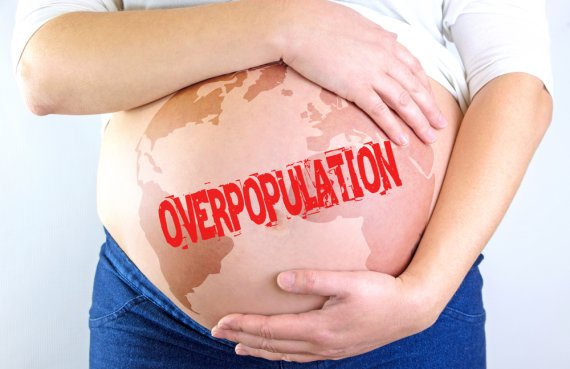© Shutterstock
The authors compare the impact of various measures taken to decrease the CO2 emissions and concluded that having one less child per couple would yield the greatest change.
What is your opinion on this conclusion?
‘The authors calculate the CO2 emissions over several generations, adding up the emissions of the child and all its progeny. They state that by having one child less, CO2 emissions could be reduced by 58 tonnes per year of life of the parent. This is a rather rough estimate, as the emissions greatly vary around the world. It is a classic example of the neo-Malthusian line of thinking; an argument that is equally used when discussing food supply: the world population is experiencing an exponential growth, but our food supply is not. However, it is not yet clear whether there is a direct relation between population growth and CO2 emissions. The issue with this argument is that the population grows faster in countries where there are generally lower emissions per capita. This might change if prosperity improves in the future, but it is probable that the population would also stabilise in such a case. Besides, the population growth in the countries with the highest emissions, such as Canada and Australia, is mostly a consequence of immigration instead of having more children. This would mean that people in poorer countries in particular should have fewer children, to compensate for the countries with high CO2 emissions.’
You mean birth control does not help?
‘I think that, in many countries, birth control would not be an efficient method to tackle the climate issues. There are so many factors involved, and I think that if we were to put too much emphasis on birth control, it might divert people from more direct measures they could take. When speaking about the global population, people rather tend to think “this has nothing to do with me”, and then nothing happens at all.’
Then what would be a solution?
‘I do not hold the definitive answer, but I think that technology might play an important part here, by observing how technology can help people adjust their lifestyle. Lifestyle is not just an individual choice. Governments play an important part in this as well. Through legislations that are meant to reduce CO2 emissions, for example, or by stimulating choices concerning lifestyle, like subsidising electrical cars. At the same time, governments can encourage innovations in this field. I think that there is a lot to gain here in the short term.’
Additional reading:
‘The food sector needs a drastic overhaul’
Case for radical change in agriculture sector
Green holidays?
‘Increasingly difficult to determine the impact of climate policy’

